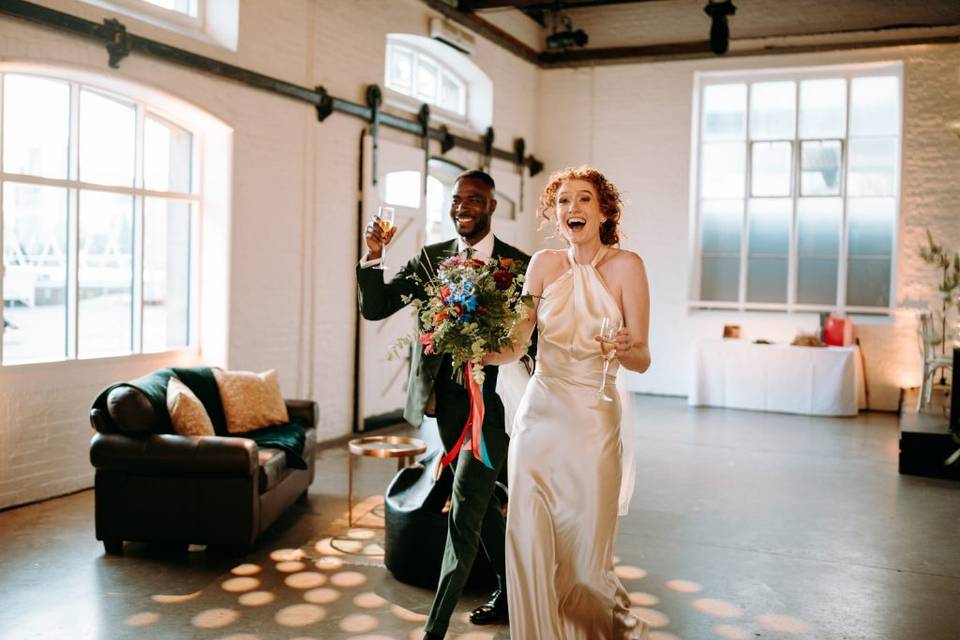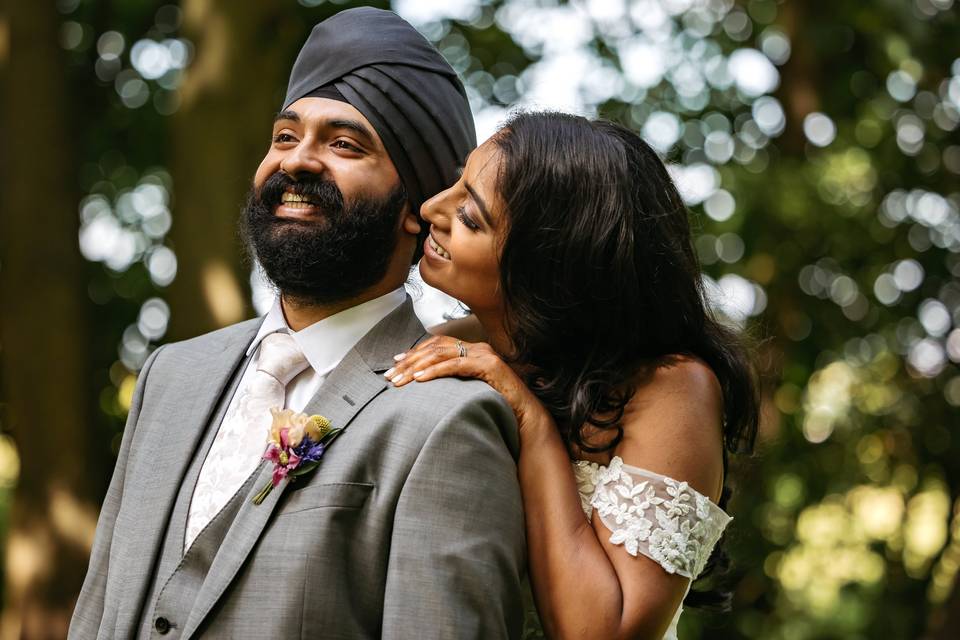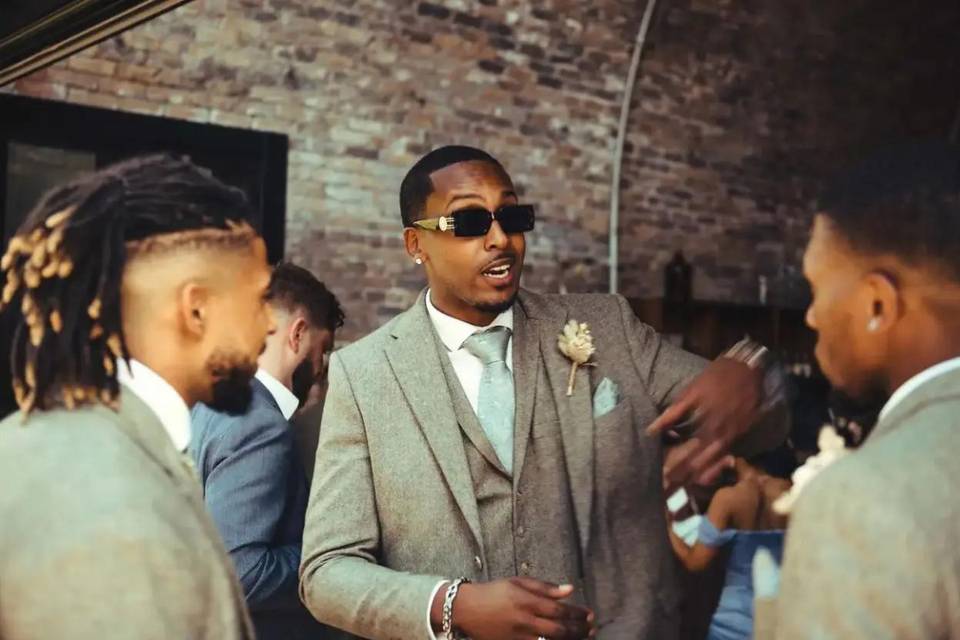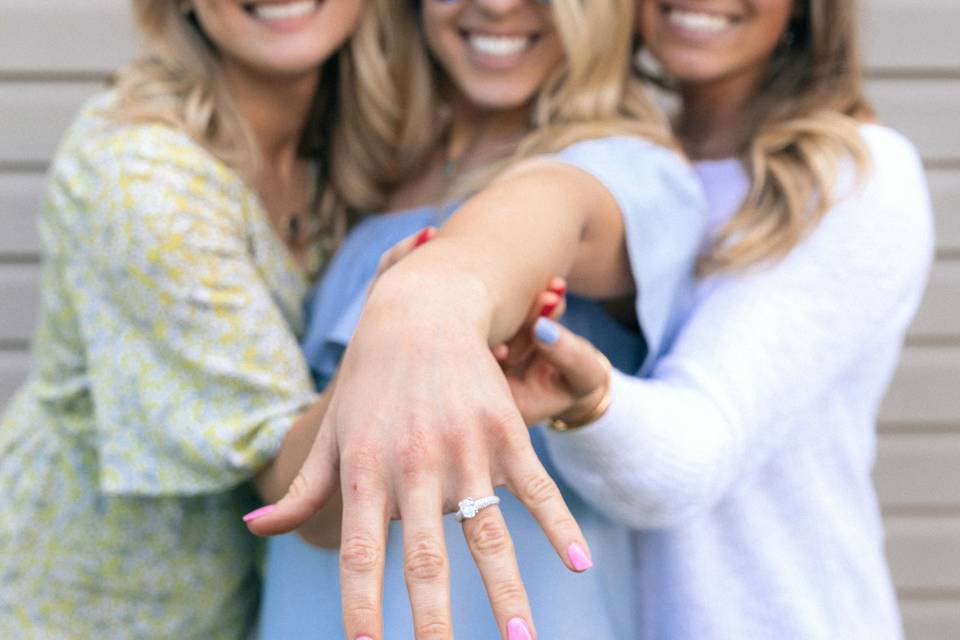How to Get Married in the UK: Everything You Need to Know
Planning on getting married in the UK? Banish wedmin stress with the help of our essential guide to keeping everything on track
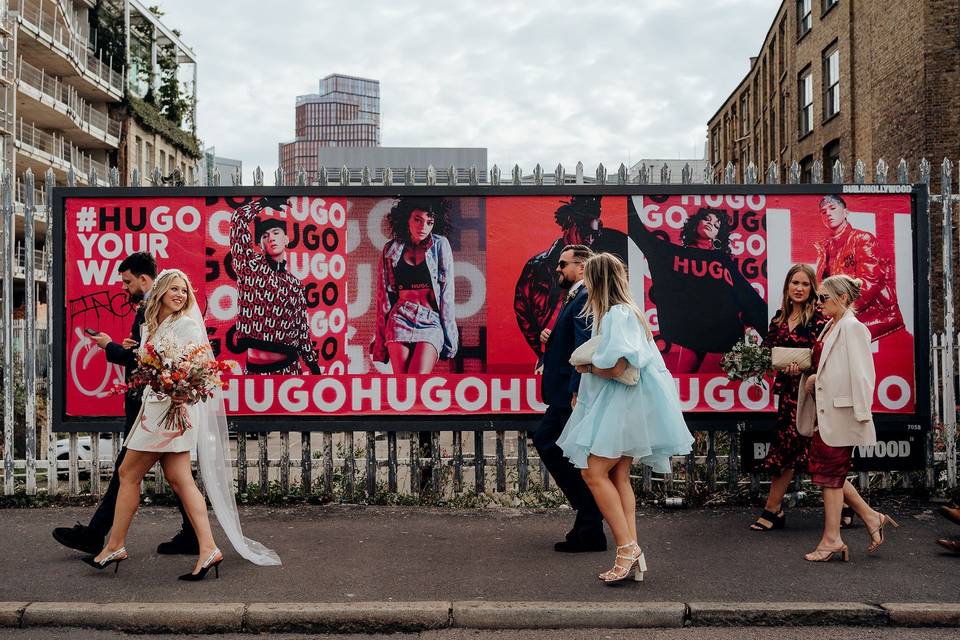

Congratulations, you’re engaged! Not sure where to start? Thankfully, we’ve got you covered with our ultimate guide on how to get married in the UK.
Before you worry about the colour palette and your first dance song, you might be wondering - how can I get married? Or even, how do you get married in the UK? Well, you're right to ask!
Covering everything from ceremony types to booking the perfect wedding venue, wedding laws to giving notice of marriage, we are here to help get you seamlessly from ‘Will you?’ to ‘I do’ without a hitch.
How to Get Married in the UK: Your Step-by-Step Guide
Before you start making mood boards and appointments at bridal boutiques, you’ve got a ceremony to sort!
Civil wedding UK laws are the same for all couples, regardless of sexual orientation or marital history. However, it’s important to note that same-sex couples are not currently legally able to marry in the Church of England or Church of Wales – though they can receive a blessing.
We’ve got all you need to know in our step-by-step guide to wedding UK laws below.
- What Types of Weddings are Possible in the UK?
- How Do I Get Married: Legal Requirements to Get Married in the UK
- What Paperwork and Documentation to Wed and Get Married is Required in the UK?
- How Much Does it Cost to Get Married in the UK?
- Getting Married in Scotland
- What Will Happen During My Wedding UK Ceremony?
What Types of Weddings are Possible in the UK?
When it comes to getting married in the UK, the first thing to do is decide on your ceremony style – whether that’s civil or religious, including Anglican, Roman Catholic, Jewish, Quaker, multi-faith weddings and more.
Civil Ceremonies
Civil wedding ceremonies are non-religious ceremonies conducted by a registrar at a register office or approved venue. If you’re looking for flexibility around venue choice and ceremony content, then this is likely the best option for you.
To ensure your civil ceremony is legally binding in the UK, you and your partner must exchange vows that include specific legal wording. These are known as ‘declaratory’ and ‘contracting’ words. The declaratory part involves each partner stating that they have no legal reason to not be married. The contracting part involves each one of you officially accepting the other as their spouse – your ‘I do’ moment!
Many nearlyweds ask this questions: how many witnesses to get married in the UK is enough? The answer: two!
While you can choose to incorporate your own readings and songs to personalise a civil ceremony, religious content is not permitted. A registrar, who either conducts the ceremony or is present throughout, will make sure everything is official – however, you will also need two witnesses to sign the marriage register alongside you and your partner.
Religious Ceremonies
Religious weddings occur in places of worship (with the exception of Jewish weddings, which don’t have to take place in a synagogue as long as it’s beneath a Chuppah and a rabbi is present) and are officiated by religious officiants according to the customs and traditions of each faith.
Similar to what happens in a civil ceremony, you and your partner will need to solemnise your marriage by saying a prescribed form of words. This exchanging of words or vows may also include declarations and rites specific to your religion.
After your religious ceremony, the marriage must be registered immediately by the officiant, who signs the marriage licence. If the religious leader is not authorised to register marriages, a civil registrar must also be present to legalise it.
Humanist Ceremonies
Humanist weddings – or celebrant-led weddings – focus purely on celebrating love and commitment without the reference to a higher power or deity. They’re conducted by humanist celebrants and make a wonderful alternative to a conventional wedding ceremony.
However, it’s important to note that humanist ceremonies are not currently legal in England and Wales. As such, it means they can take place almost anywhere, providing your celebrant agrees – but you will need to marry at a register office before or after your humanist ceremony to make it official.
Humanist ceremonies are legal in Scotland and Northern Ireland.
Civil Partnerships
In the UK, couples can also choose to have a civil partnership. If you're wondering how to get a civil partnership, then keep reading!
This type of ceremony offers a legal alternative to marriage, providing the same rights and benefits. If you choose to have a civil marriage, you will register your partnership by signing a document with witnesses and a registrar present – no vows are required.
Civil partnerships in the UK have been open to both same-sex couples and opposite-sex couples since 2013. While same-sex marriage is legal, partnerships remain a popular and flexible option for couples seeking a formal union outside the traditional marriage framework, with the option to add on a separate ceremony or blessing if they want to.
How Do I Get Married: Legal Requirements to Get Married in the UK
There are legal rules around who can get married in the UK, so make sure you adhere to all these first. In England and Wales, you can get married or form a civil partnership if the following are accurate:
- Age: If you're wondering how old to get married in the UK is old enough to wed, then the answer is 18 or over - for England and Wales. In Scotland, the minimum age is 16 years.
- Relationship Status: You cannot be married already, or in a civil marriage.
- Relationship Type: Both same-sex couples and opposite-sex couples are recognised for marriage.
- Relatives: Close blood relatives are prohibited from marrying.
- Immigration Status: UK citizens, those with indefinite leave to remain, or citizens of the EU, EEA or Switzerland are eligible to marry.
- Mental Capacity: You must be mentally capable of understanding and consenting to marriage.
What Paperwork and Documentation to Wed and Get Married is Required in the UK?
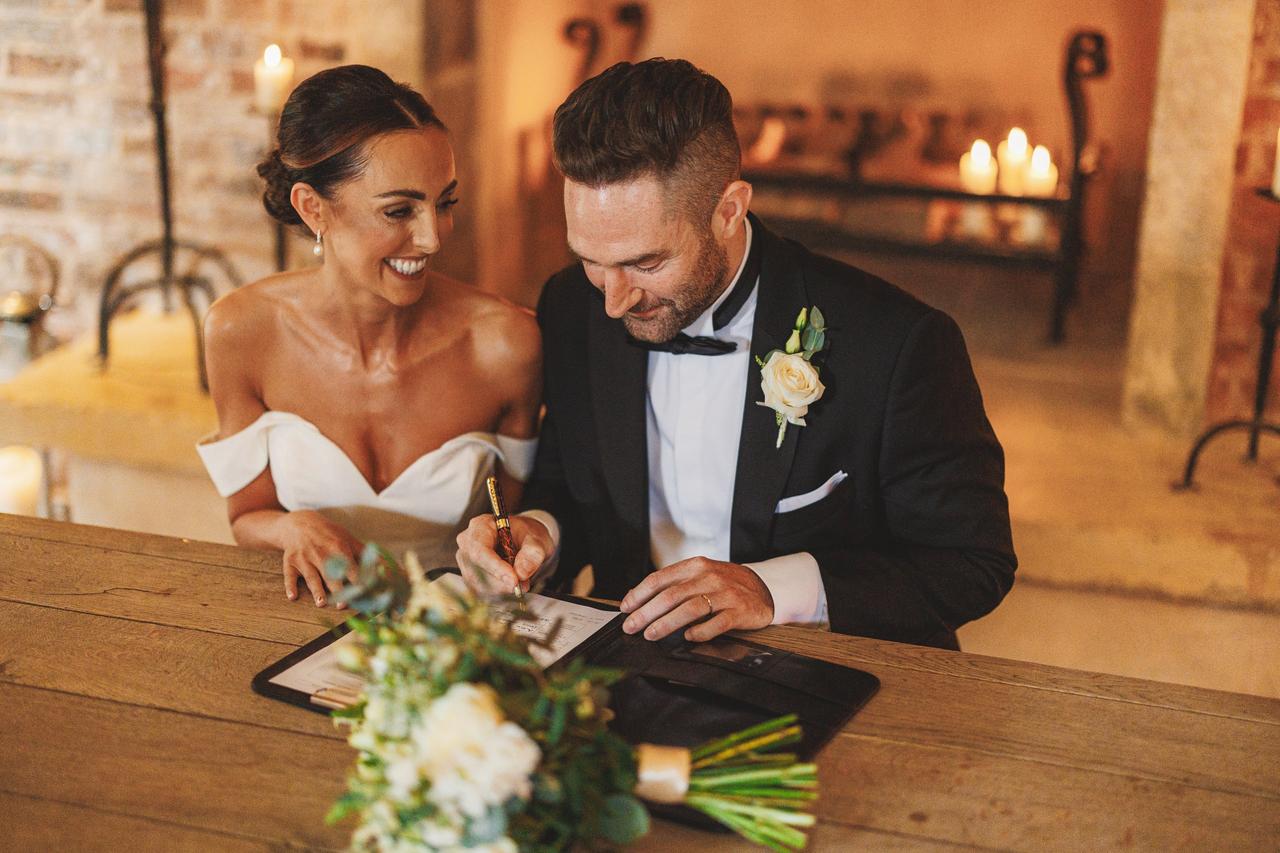
The process of getting married in the UK begins with giving notice of your marriage plans, in person, at your local register office. This is a legal requirement that informs the authorities of your intention to marry. This is then displayed for anyone to see (and object to, if they have good reason) for 15 days. After this, your notice will be valid for one year.
You and your partner must give notice of marriage at least 29 days before the ceremony and must bring the following documents with you:
- Proof of Name: This could be a valid passport or another documents with your legal name
- Proof of Age: Such as a birth certificate
- Proof of Name Changes: If you’ve changed your name via deed poll or similar, you’ll need to share documentation
- Proof of Nationality: A valid passport or national identity card can be used
- Proof of Address: A driving licence, recent utility bill, bank statement or council tax bills are all accepted options
- Previous Marriage Documentation (if applicable): The decree absolute or final order (in case of previous divorce) or death certificate of your former partner (if widowed)
- Entry Visa (if applicable): For non-residents, proof of legal entitlement to be in the UK will be required
- Marriage Details: Provide details or where and when you intend to get married
It’s worth noting that specific requirements may vary, depending on your location, so always check with your local register office for the most up-to-date information.
In the Churches of England and Wales, you are not required to give notice, however many churches still require you to announce your intention to marry through the reading of Banns during a Sunday service at the parishes where you live and the one where you’ve chosen to marry (if different).
These are usually read on three consecutive Sundays during the three months leading up to your wedding.
How Much Does it Cost to Get Married in the UK?
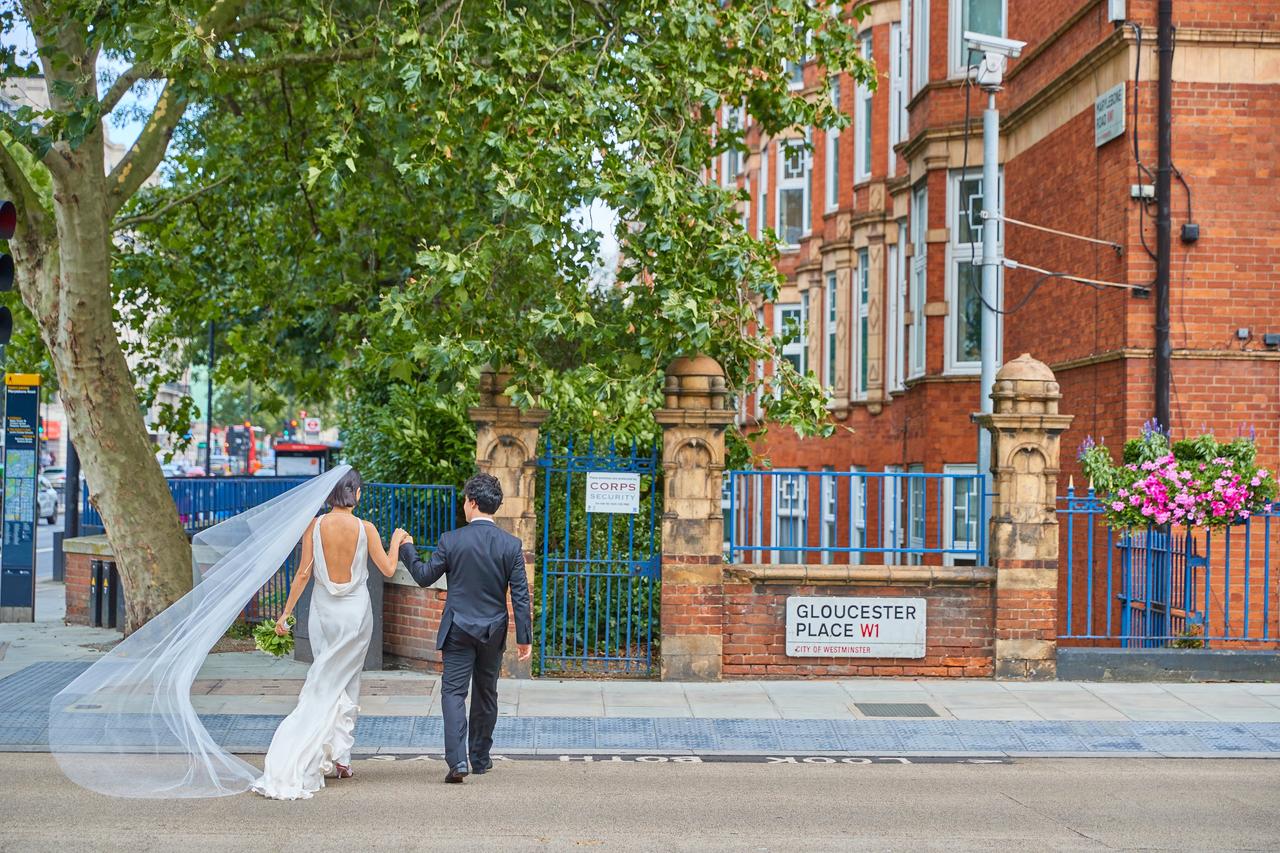
Once you are ready to give notice and have all your documentation to hand, you’ll need to make an appointment at your local register office, which costs around £42 each. If either you or your partner are from outside of the EU, EEA or Switzerland, the fee goes up to around £57.
Marriage certificates cost £12.50 and will be sent out around four days after you apply for one.
Ceremony fees will vary depending on your chosen registry office venue size and location. Registry offices in London, for example, can cost anywhere from £275 for room hire to more than £1,000.
How Do I Book My Venue and Registrar?
If you’re having a civil ceremony, you will need to make sure both the venue and registrar are available on the same day. We would recommend finding your venue and reserving your wedding date, then immediately calling the register office to book your registrar for the same date. You can’t book the registrar without a date or venue, so it’s essential that you have both of these to hand.
Some venues will book the registrar for you – which will save you a job! Be aware that some registrars won’t take bookings until a year before, at the earliest, so if your venue is popular and gets booked up years in advance, book it, and make a note to call the register office exactly a year to the day before you’re due to marry to avoid disappointment.
What Kind of Vows, Readings and Music Can I Have at my Wedding?
Alongside the vows you are required to say (to ensure your ceremony is legal), you may wish to add in some of your own. Just be sure to run them past the officiant conducting your ceremony beforehand – it’s also a good idea to get approval on other personalised aspects of your ceremony, such as the music choices and readings.
For example, if you’re planning a civil ceremony, you are not allowed to include any religious content such as hymns, readings or prayers.
Getting Married in Scotland
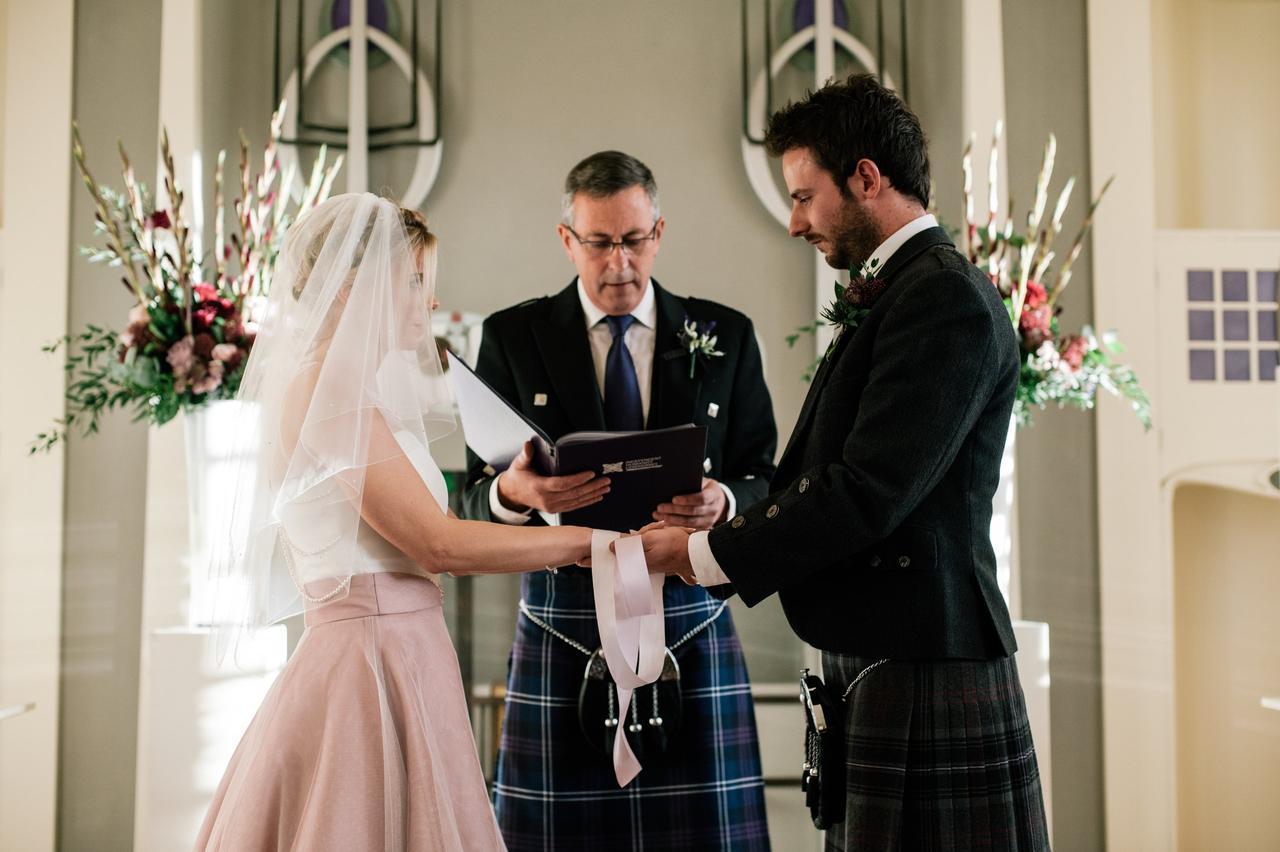
If you’re getting married in Scotland, note that there are a few differences between tying the knot here compared to weddings in England and Wales, including the age at which you can legally be married and where.
In Scotland, you can have a religious ceremony pretty much wherever you like providing your officiating clergy agrees. For civil ceremonies, you can choose from an approved list of venues – as in England and Wales – or potentially ask for temporary approval of your chosen venue at least three months before the wedding date.
Humanist and celebrant-led weddings are also considered legally binding in Scotland.
Elsewhere, if you’re thinking of getting married abroad, be sure to check out our guide to destination weddings. Although the prospect of arranging a wedding 4,000 miles away can feel scary, there are plenty of companies who offer insider advice and a dedicated planning service.
What Will Happen During My Wedding UK Ceremony?
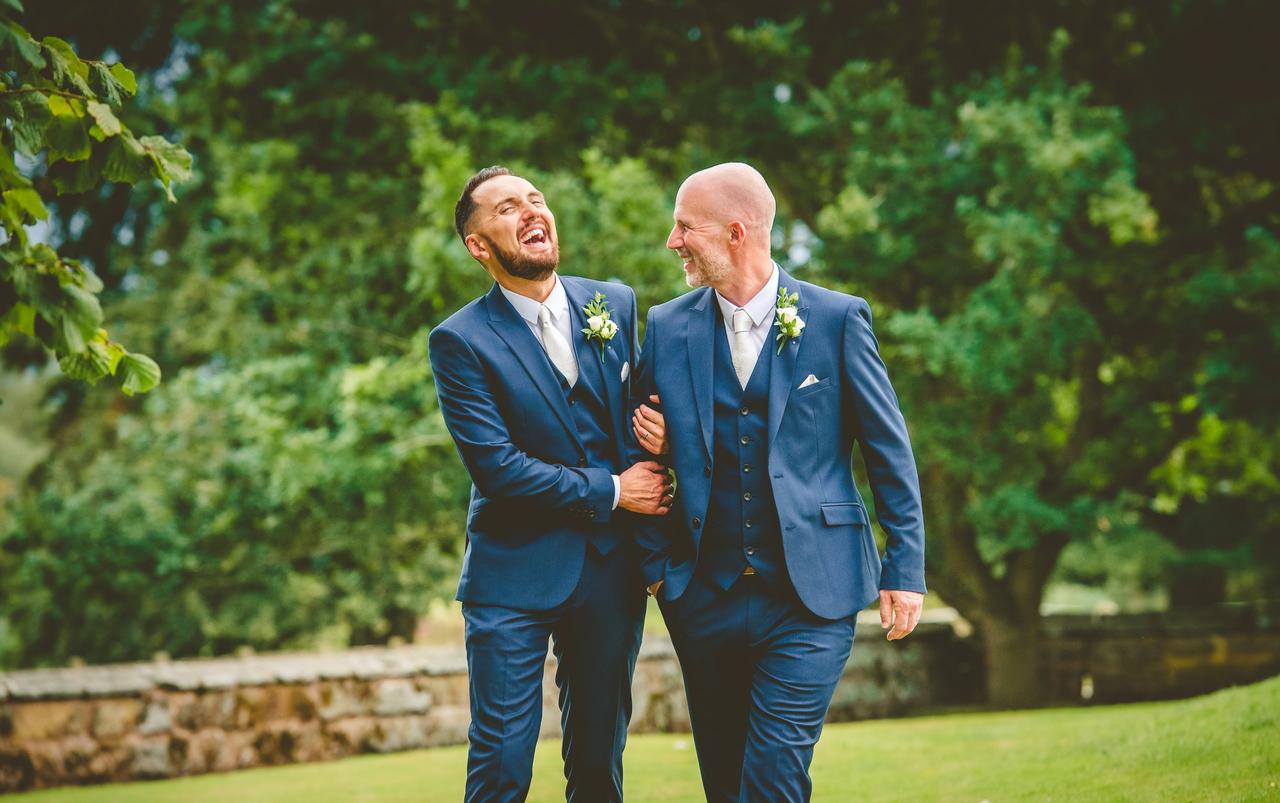
Now for the fun part! Your registrar, celebrant or officiant will talk you through the exact process, but most weddings in the UK follow a basic outline.
On the day, prior to the ceremony, you will meet with the officiant marrying you – either together or separately – to double check your identities and the names and details that will be on the marriage register and wedding certificate in the UK. This will be a short meeting, around 15 minutes or so.
A registry office ceremony will only take around 20 minutes (potentially up to 30 minutes with the addition of readings and personalised vows), but a religious ceremony can be longer. A civil partnership can be as short as two minutes if all you want to do is sign the certificate!
Here’s what to expect:
- Walk down the aisle (if you want)
- Welcome and intro from the officiant
- A reading (if chosen)
- Declaratory words (“any lawful impediment…”)
- Exchange of vows and personal promises
- Exchange of rings
- Pronouncement of marriage
- Kiss!
- Signing of the register
- Presentation of marriage/civil partnership certificate
- Closing remarks
- Couple’s exit
Then, of course, you’re free to take your photos while guests mill around outside, drinks in hand, before going on to celebrate with your friends and family. It’s time to party!
The final step in your wedding journey is changing your name. Here’s our ultimate guide to changing your name – with a list of everyone you need to inform!




